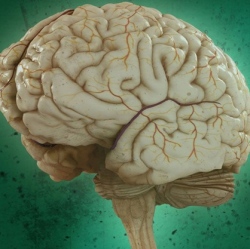
At the age of six, Albert Wong was diagnosed with a condition called Duchenne Muscular Dystrophy. Doctors predicted that he would be wheelchair bound by the age of 10, though he went on to earn straight A grades and a law school scholarship.
Now in his twenties, the Malaysian law graduate is largely bed-bound and his muscles are steadily deteriorating. According to his mother, Swee Peng Yap, his hand is too weak to control the joystick of his wheelchair controller.
But if a Feb. 22 “designathon” hosted by Silicon Valley startup Emotiv is successful, Wong might some day be able to move his wheelchair using the power of his thoughts. The idea is for the community to leverage the Emotiv neuro-technology to build exciting new applications.
The goal is to build a headset for Wong to help him control his wheelchair and communicate better using a combination of mental commands, facial expressions, and head movement.
Desperate to help her son, Yap flew to San Francisco in early January to meet with tech entrepreneurs, including a former student of hers, Cheryl Yeoh. Wong’s plight eventually came to the attention of Tan Le, the Vietnam-born cofounder of Emotiv. Emotiv is a San Francisco-based company with a headset capable of picking up electrical signals from user’s brains and translating them into actions.
“Emotiv’s technology has been utilized to help people with limited mobility regain some control of their surroundings, increase ease of communication and improve overall quality of life,” said Emotiv developer relations lead Joyce Golomb in an interview. ”We are eager to help Albert and would like to tap into our community.”
